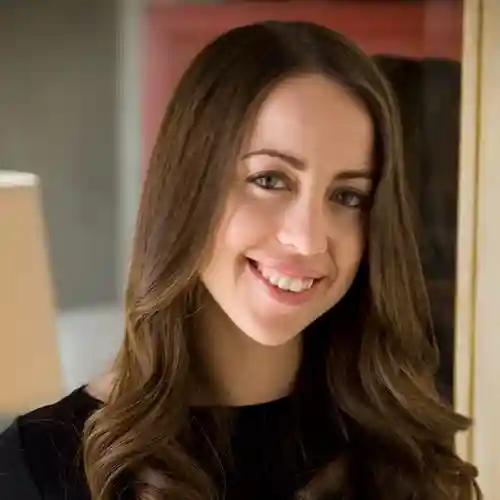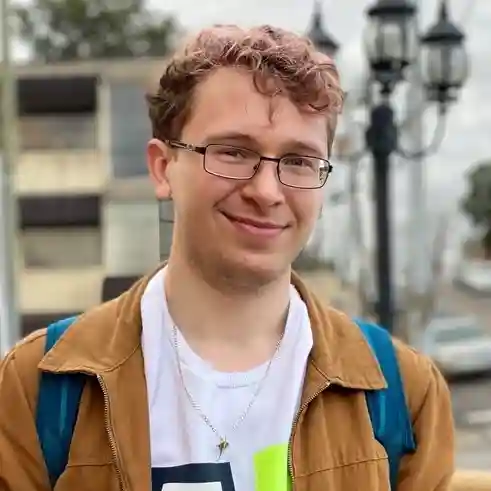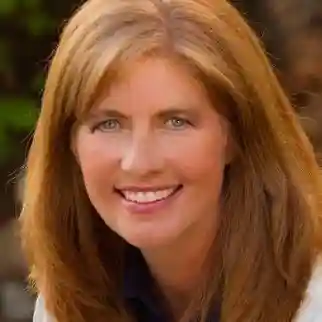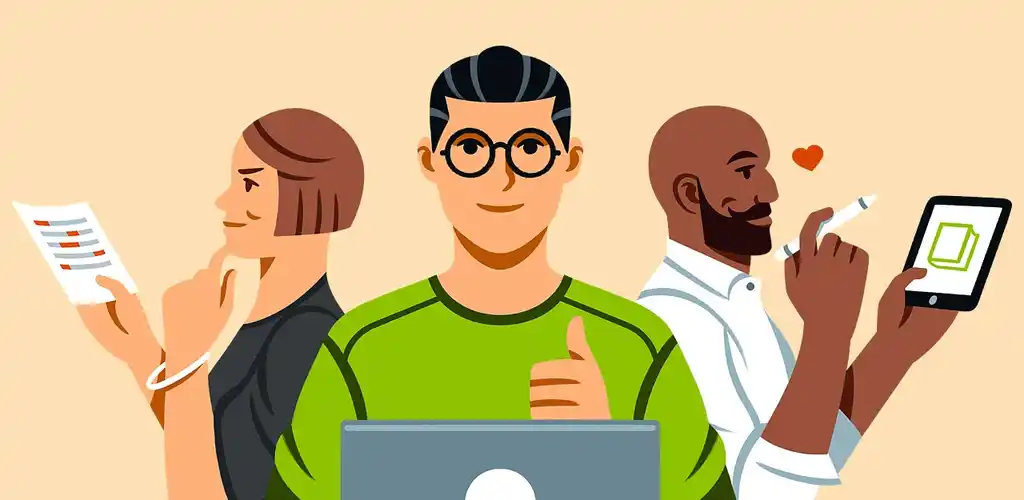Write Better Characters: The Role of Anti-Heroes and Why We Love Them
15:00 EST - Jun 03, 2020
This transcript has been edited for clarity. To find out more about how Parul can help you with your next book, head to her profile on Reedsy. Also, check out her podcast that she co-hosts with Randall: Story Grid Showrunners.
Parul Bavishi: So my name is Parul. Just two lines about me: I'm an editor. I have a particular fondness for thrillers and action, and I've been an editor for 12 years. Randall is a co-host on a podcast that I run.
Randall Surles: I also like editing thrillers, which is how we got together. I was in the military for a long time, so I specialize in military thrillers.
I prefer not to know exactly how I feel about a character
Parul: So this quote by Phoebe Waller-Bridge is our starting point for talking about the anti-hero. Randall and I have both been following and analyzing the series Killing Eve for our podcast. And the writer of that was Phoebe Waller-Bridge.
When she talks about anti-heroes and heroines, she says, "I prefer not to know exactly how I feel about a character." And this really inspired me. It made me think: What is the allure of antiheroes? Why are we seeing so many? We definitely have had them in the past, but in today's world, in TV series, and films, and books, we're seeing a lot of anti-heroes and heroines. For a lot of the writers that I work with, I try to get them to think about characters that last long after the book is finished. How do we do this? Well, obviously there's no magic answer, because there never is. But I do think that there are some considerations that can help you get close to the mark
Randall: That's what we're going to answer today. The question is, why do we like these unconventional heroes and heroines? And how can we create irresistible, flawed characters of our own for our stories?
So today, real quick, our agenda will be:
- What is an anti-heroine or hero?
- Three core questions you can use to help round out your characters, and
- How to use a story showdown to bring out your character's true self.
And then we're going to analyze a few anti-heroes and heroines to inspire your work.
What is an anti-hero?
Parul: It seems generally accepted that an anti-hero is a character who lacks the conventional attributes of a traditional hero, often courage, or morality. Is that precise enough though?
Randall: I think you can also say that it's a protagonist that does the right thing, but maybe not for the right reasons. For instance, Superman has always got the weight of the world on his shoulders, he's always doing the right thing. But the heroes you see in many current movies, TV series, and books will have their own selfish reasons for doing the things they do.
Depending on their agendas, they can be called anti-heroes. Christopher Vogler talks about the anti-hero as a special kind of hero, one who may be an outlier or villain from the point of view of society, but with whom the audience sympathizes. And that's what we're trying to do: create sympathetic protagonists for our readers.
Creating empathy for characters
Parul: How do we empathize with the character? It helps to understand what they stand for and what their end is. And even if we don't agree with the means that they use to get to that end, what they want might be noble and their moral compass allows them to do things that our traditional heroes won't. Jack Reacher is a very good example. He's quite happy to bust a few wrists and send some baddies to the hospital, as long as he protects the innocents.
Defining a hero
Parul: Of course, the good old fashioned heroes are awesome too, the Wonder Women, the Captains America, the classic detectives. If we're looking at anti-heroes, then how would you classically define a hero?
A hero is a person who we admire, who's done something very brave, or achieved something particularly great. I saw one definition as "a man of superhuman strength or physical courage” and the idea of a defender or protector really rings true. Obviously, we're referring to both heroes and heroines, so not just male characters, and hero and heroine aren't strictly linked to just action/thriller. “Hero” is often used interchangeably for the main protagonist of the story.
Three types of antiheroes
Parul: We whittled things down to three types of anti-heroes.
1. The imperfect or reluctant hero
Randall: These are the heroes that didn't start to be heroes. We’ve got Frodo and Bilbo Baggins from The Lord of the Rings and The Hobbit. They're hobbits. They don't do adventure. They are thrust into the hero job and resist it, but by the end they accomplish the mission and become the hero. When the hobbits finally go back to their shire, they are changed, they're not the same people.
There’s also Jack Ryan who starts out as a paper pusher intelligence analyst that gets thrust into doing exciting things. In Jurassic Park, we’ve got the doctor, played by Sam Neill, who didn’t go to school to run around and fight dinosaurs, but gets thrust into this position where he's rescuing children and using knowledge from his studies.
2. The morally grey hero
Parul: Next we have the morally grey hero. We've got Jack Sparrow, Han Solo, Tyrion Lannister, Hamlet. These characters are undertaking a mission that ends in a just cause, but often for selfish motivations.
There are a lot of mercenary characters that fit into this, like Scandi detectives.
3. The whatever-the-cost hero
Randall: The last one that we broke down is the whatever-the-cost hero. These are the anti-heroes that do the right thing… save the world, save the victim...but do it at whatever cost.
Some good examples are Batman, Jack Reacher, Lisabeth Salander, Eve Polastri, Walter White, who's just trying to save his family but becomes almost a villain, Severus Snape... the list goes on and on
Are they a villain?
Parul: Next we have some characters where it’s like, I don't know, are they a villain? Are they an antihero? Humbert Humbert from Lolita is a good example… you could think he's an anti-hero because he lacks the characteristics of a hero, chasing an underage girl that he thinks is the love of his life. But you could quite easily call him out for being a villain. Tom Ripley is another example. Tom Ripley is lacking in the traditional qualities of a hero - does that make him an anti-hero? He is after an end goal and perhaps the question is whether he convinces us to that his end is justified. It’s a subjective option because ultimately there is a fine line between villain and antihero.
And then you have characters like Fleabag, written and played by Phoebe Waller-Bridge, who wrote Killing Eve. Is she an anti-heroine? Yes, in the sense that she's outside the norm of a character, searching for solace for her grief and loss. And she does so in such a quirky, wonderful way, that maybe she'd be classified as an anti-heroine.
How do we create characters we’re drawn to?
Parul: In the end, it doesn't really matter how we classify this. What this is about is: how do we create characters that we're drawn to? We'll start with...why do we love anti-heroes?
They evoke emotions in us by the decisions they make. If you've watched Killing Eve, in season one, she stabs Villanelle instead of arresting her, or instead of kissing her. And that's quite an emotional and strange decision to make. But that evokes a response in us. They take us outside our normal world, and they break boundaries that we don't. It's almost like we can live vicariously through them.
The glue of empathy
Parul: Robert McGee, who is an excellent teacher of screenwriting, talks about how with your characters, and antiheroes and heroines, it's not about likeability, it's about empathy. And he says, "Likeability is no guarantee of audience involvement, it's just an aspect of characterization." And he talks about how, in order to get the audience involved, they need the glue of empathy.
So if we empathize with the character, we can still connect to them, even if they're going around stabbing, killing, shooting, stealing, lying, and embodying all these anti-hero traits.
Randall: When I was doing research for this, I also stumbled upon a quote by George R.R Martin, of Game of Thrones fame. He was talking about his character, Tyrion Lannister, and described him as the deepest shade of grey.
"I've always liked grey characters more than black and white characters. I look for ways to make my characters real, and make them human. Characters who have good and bad, noble and selfish well mixed in their natures."
Authentically flawed characters are becoming popular and showing up in all kinds of strange places now because people are tired of the black and white, the, hey, you're either evil, or you're good. They want to see something that they can be empathetic for in the villain, and also in the hero, because they want to make them realistic. And I think Killing Eve does that great for both the villain and the hero.
Parul: When you're starting to create a character, and you're thinking, "Okay, how can I make this character stand out?" Writers start to add layers to the character, looking for traits that take them into the shade of grey, but sometimes it actually goes a lot deeper than that, which is exactly what we're going to go into next.
Questions to add shades of grey
Parul: How do you test the characters that you've created to push them further and round them out? Three questions to ask are:
- What is their objective desire?
- How far will they go to get it?
- Does the character change or not?
First, what is the objective desire?
Robert McGee describes the objective desire as the missing element the protagonist seeks in order to restore balance to his life. For Severus Snape, what he wants is to keep Harry Potter safe. Why? Because he's sacrificing himself for the love of Lily Potter.
Next, how far will they go to get it?
Severus Snape risks everything he has against the darkest lord of all time. He Who Should Not Be Named. And he's sitting at a table with him pretending to be a death eater, when actually, he's double crossing him and knows at any moment, he might die. And the third question...
Randall: The final question isn't so much a question as tracking your character arc, and figuring out if your character is going to change or not. There are a lot of great characters that could be considered anti-heroes, like James Bond, and Jack Reacher, that just don't change. But let’s look at our three types of hero.
- For the imperfect or elected heroes Jack Ryan or Bilbo Baggins, they actually change at the end and have a different kind of worldview.
- With the ones that do the right thing, whatever the cost (Batman, James Bond, Lisabeth Salander), at the end of the story, they still have the same code.
- The morally grey, unscrupulous heroes like Han Solo and Tyrion Lannister can go either way. In the case of Jack Sparrow, he’s still a pirate in it for himself. Han Solo, on the other hand, starts out scrupulous and then ends up becoming part of the revolution.
Parul: With the characters you mentioned who don't change: their world view, morality, or status in a genre don't shift. And one isn’t better than the other….I can think of characters that I love who both have changed and haven't changed.
Randall: With Severus Snape, he, throughout the whole series, treats Harry Potter the same way. We think he's a bad guy, he looks like a bad guy, he treats Harry like a bad guy might… but at the end we find out why: because Lily Potter is his obsession, and because of what Voldemort did to her he has this sole goal to get revenge.
The showdown: putting characters to the test
Parul: Next, we have the showdown. The showdown is that big event the story is building to, which often happens in the last third of the book. For Severus Snape, him against Voldemort is his showdown. This is where he reveals himself, his sort of inner world, which is that he's a changed man. He proves his love for Lily, sacrifice of love.
The showdown is the big event for the character where you will see a reveal about who that character is and how they may have changed.
Examples of antiheroes and antiheroines
Parul: Now we're going to look at 10 antiheroes and heroines and the questions we raised, along with an extra question: what is a defining element of this character?
If you think of some of the books and characters you love, what is the defining characteristic of them if you were to describe them to someone else? So, Randall, you love Breaking Bad and Walter White. Can you tell me a little bit about his defining element?
Walter White
Randall: Walter White is the anti-Superman. He's not respected by the children, he's an underpaid teacher in an American high school, and so I think that his defining thing is: he's a mild-mannered chemistry teacher. And then he does these spectacular, crazy things that are totally out of character for a chemistry teacher. Because he's smart. To be a chemistry teacher, you’ve got to study some smart stuff. He's smarter than all the kids in the room.
Parul: And then his objectives? What does he really want?
Randall: He starts out really wanting to protect his family, because he has cancer, leading him to ask:, "I’ve got to support my family. I'm going to die. How are they going to live? I’ve got kids." And then his wife becomes pregnant, so that escalates that progressive complication. He wants to save his family, and make sure they're secure.
Parul: How far will he go?
Randall: He's willing to do a lot of nefarious stuff. He's willing to meet with crazy bad people, he's willing to deal drugs that are going to kill more people, he's willing to kill, he's willing to cheat, he's willing to lie to his family.
Parul: When he meets his big event, how does he react?
Randall: There are so many showdowns. His defining thing is always, when you break this down, that he is a chemistry teacher at a high school, not really high on the totem pole. And at the end of the first season, he's face to face with the biggest drug lord in town where he says: "Hey, this is the way we're going to do business."
He's already thought of contingencies and set up a bomb to blow this guy’s lair up, and proves he's the real deal. He convinces the drug lord that he's a drug lord, and makes him do business with him, all because of the bomb and his chemistry.
His character arc goes from chemistry teacher making a living and loving his family to not having cancer and not needing to do this anymore. But he gets deep into it, he's on the verge of turning super evil... he's killing people right and left in the last season. Like I said, he's the anti-Superman.
Lisbeth Salander
Parul: With Lisbeth Salander, she's a hacker, incredibly smart. But she's also quite obsessed with being on her own. So she's a very intelligent woman who has some loner tendencies.
Randall: And so what's her objective desire?
Parul: In the first book, she just wants to solve a case that seems like a dead end, but actually ends up chasing a serial killer. But it's very personal to her, because it's about violence towards women, and her objective desire is to absolutely nail the person who did that.
Randall: And how far is she going to go for that objective?
Parul: It's interesting how far she’ll go. She's Goth to the nth degree, looking a bit dangerous, but she’s also very tiny, not necessarily physically imposing. And yet, she will take down a grown man. She's also willing to rape the guy who raped her brutally and kill if she needs to, because justice is what she's after.
Randall: What's her character arc?
Parul: She changes so subtly. There is a softening to her, but it's very slight. And as the books go on, we realise why: she's endured such terrible treatment since she was a child, and it wouldn't be realistic for her to shake that off. Her inner worldview stays at disillusionment almost throughout.
Randall: How does this all manifest in the showdown?
Parul: The big showdown in the first book is where the investigator she's working with, or the journalist, Mikael Blomkvist, is being strung up for a potential rape and murder. And in comes this creature, small and fierce, who takes down the real serial killer with such anger. Her objective desire is justice. She doesn't care how she gets it done.
Eve Polastri
Randall: Next, we have Eve Polastri. Her defining feature is that she is super intelligent, and her gift is figuring stuff out what other people can't figure out. And in this case, she's also obsessed with female serial killers.
Parul: And what about her objective desire?
Randall: She wants more excitement in her life: she's got a security job with MI5, but she wants to be in charge ... she wants to track down serial killers, save the world, be a hero.
Parul: She's absolutely single-minded. And how far will she go?
Randall: In the beginning, she's very by-the-book. But as the series progresses, she definitely throws the book away. I remember when we did this on our podcast, you were saying, what other series or book would you have someone saying, "Do I stab her, or do I kiss her?"... So she's willing to lie, cheat, stab, think about kissing the villain even. So she's kind of betraying her objective desire almost.
Jack Reacher
Parul: Next we have Mr. Reacher. Jack Reacher. I like to think that he has the unyielding philosophy of a Western character. Western characters don't have a home, they wander around with just the clothes on their back, and they don't wish to be held down by society in any way. And yet, they believe in freedom. I've had conversations with people on trains because they've been reading Jack Reacher. And inevitably, they always say to me, "God, don't you love that he just has no possessions?"
Randall: What's his objective desire?
Parul: In every single book, he has to solve whatever crime landed on his lap and get it out the way, and solve it before he can continue on his hitchhiking ways.
Randall: And how far is he going to go to reach that objective?
Parul: It's whatever it takes, as long as innocents are protected. With him, it's very cold and calculating: "Oh, you're in my way. Okay, I'm going to have to break your wrist. I won't actually kill you, but I'll make sure that you won't be eating for two months."
Randall: And what about his character arc?
Parul: Only in some of the later books does he change, he softens a little bit...He feels a bit bad about not having money when he meets up with all his old military friends, and there’s maybe two women that I've seen him try to settle down with. But his character is in itself appealing just as it is. His steady, unyielding morality and worldview are what makes Jack Reacher an iconic figure.
Sherlock Holmes
Randall: Sherlock Holmes. If you look at him, especially the way he's portrayed by Cumberbatch, he is bored. He doesn't care about the people he's solving the mysteries for, and treats them like they're in his way, especially if they're not giving him the right information.
Obviously his trait is, he's vastly more intelligent than everyone, right? His objective desire is to solve the case however he can. How far is he willing to go? He's willing to endanger himself, he's willing to endanger his friends… really, at the end, he's just worried about solving the mystery. He doesn't even care if the criminal goes to jail half the time, I don't really think.
He kind of meets all the antihero checks, which gives him a depth of character. If you really get into a series or a book, you feel like you know them... And because of the way the writer has created showdowns, in the most stressful situations, you know how they're going to react. Or once you've read it, you understand the depth of who they really are.
Randall: And you anticipate it. And that's why these serial characters are so great...even the little things you anticipate, like James Bond going, "Shaken, not stirred."
Tyrion Lannister
Randall: Tyrion Lannister...But basically, his one characteristic is he's not threatening. He wants to be non-threatening, because he's in a position of power, I don't know what number he is to the throne...but people can see that as a threat, and they can want to take him out. He is defenseless and non-threatening, and his objective desire is to survive, especially in the beginning.
How far will he go? He’ll do some unscrupulous things to survive. He's betrayed people, he killed his father. He has a character arc. He's really smart, he kind of feels like he's underappreciated... and then kills his father, becomes the mentor to the Dragon Queen, and believes in good at the end
Parul: So here's a challenge for you as we’re running out of time. Should we just do one or two words for each of the next characters?
Han Solo
Randall: Charm, devil-may-care attitude.
Parul: Wants to survive, doesn't care about anyone else really.
Randall: And then he has a character arc: he changes from being only about himself to being about his friends.
Jack Sparrow
Randall: No character arc. He's the same guy in the beginning, same as the end. He's all about himself for the most part, and he ends up doing good by accident because it gets him where he wants to go.





